How women are helping women change the world
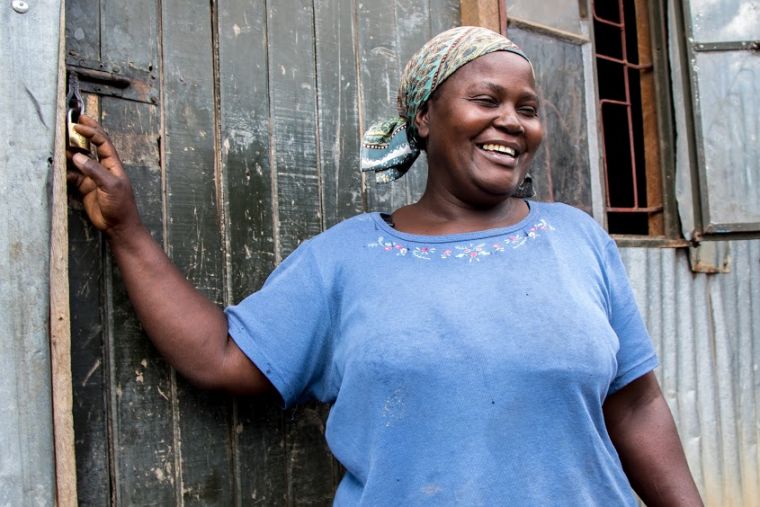
The theme of International Women's Day this year is 'pledge for parity', so I'm celebrating business women across the world who are learning from, and supporting, one another.
A number of organisations work with women across developing countries to help them set up and manage their own businesses. Women still tend to be more financially excluded than men in their communities and yet they are responsible for feeding their families, which provides a huge motivation – on average, women reinvest 90 per cent of their income in their families, while men reinvest less than 40 per cent.
Many of the charities that work in developing countries use a microfinance system, providing small loans to individuals to set up their own businesses. The report Women and Repayment in Microfinance states women are better credit risks for such enterprises. The NGOs and other regulated microfinance institutions that work the best are those that focus on developing hands-on, women-friendly approaches tailored to their individual needs.
One such charity is Five Talents, which was born out of the 1998 Lambeth Conference of Anglican Bishops as a way of tackling poverty and uses the parable of the talents as inspiration. Working with locally based partners, it supports programmes in 12 countries.
Making a connection
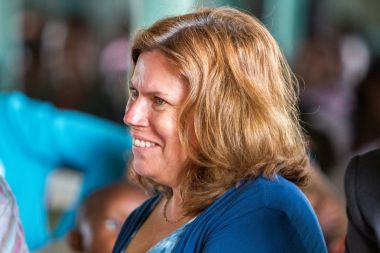
Five Talents encourages female entrepreneurs to visit female business owners in Africa to share their expertise. Here's how Amy Le Coz, executive director of DMS Media, became involved with this initiative:
"Thirteen years ago, as I was studying for an MBA in entrepreneurship, I was struck by the number of people who had started businesses to meet pressing needs. At that time this was a great comfort to me. I was a single mother, recently redundant, and so I thought I too should give business a go.
"Fast forward a couple of years and my business was doing well enough to support me, my family and about 20 employees. That's when I came across Five Talents. I first went to Tanzania, and then to Kenya. While there I met women like Anne. Some people might think that she and I have little in common. The truth is we are driven by the same purpose – providing for our families. We are separated by country of birth and opportunity, but we are sisters through a passionate desire to achieve success in our business.
"My first year of business was tough but I launched my company and within a few years I was able to provide a secure future for my family. Anne did exactly the same, only her business was rearing chickens. All our children were fed, clothed and educated as a result."
Anne's story
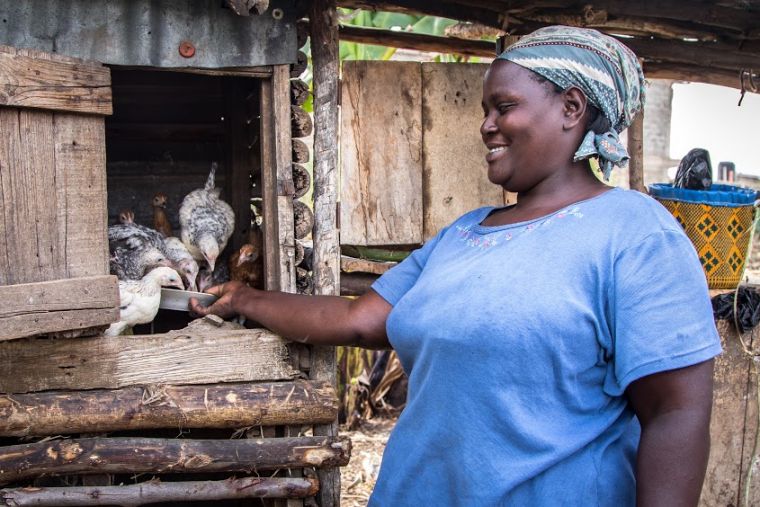
Anne is married, lives in Kaimbu county in Kenya and has three children. She showed promise in school, obtaining O Levels earlier than many English teenagers. However, as an adult, she and her family relied on her husband's small income from his tailoring business. There was little money left over for saving or investments and their credit history with the local bank was poor so they could not access a business loan.
Anne joined her local Five Talents Trust Group in 2013. At first her savings were about £2. After a number of months of saving and business training, she took a small loan equivalent to £34 from the group's pooled savings and bought a flock of free-range chicks. By repaying this loan, Anne was able to obtain a larger loan of 60,000 ksh (£400), which went towards renting a small plot of land and purchasing more chicks.
By 2015 Anne's business was going well, she'd built a new family home and her children were at school.
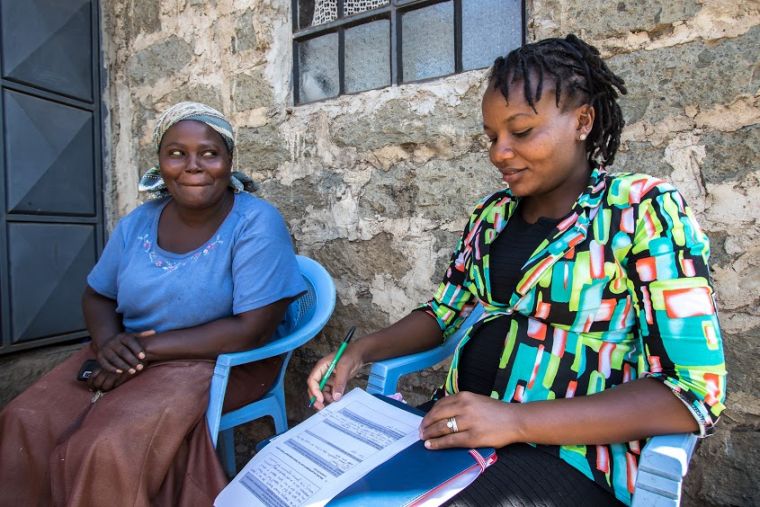
Anne is proud of what she has achieved: "Being in the group made me more assertive to grow from a housewife and help generate an income to support my husband. I have learnt that savings – regardless of how little – can boost you a lot in the future and that coming together as a community can help you go far together."
The sharing of personal stories is vital when women from across the globe meet one another. Amy says: "Each time I arrive, I am struck by how small I am in the world and immediately think, 'Whatever can I hope to give these people to help them?' But when I meet them as individuals and we share our stories I see that the biggest thing that I can bring them is my belief in their own abilities."
Programmes that equip
Five Talents isn't the only charity encouraging women to run their own businesses in order to look after their families – Mothers' Union, Tearfund and Links International are just a few others that come to mind.
Working on its publication Families First, I have learned a great deal about what Mothers' Union is doing around the world to equip and educate women. I asked campaigns and social policy assistant, Rose Wright, to pick out just one initiative that she believes is really helping women gain parity.
"Our Literacy and Financial Education programme equips local people – usually women – with the skills to be literate and take control of and manage finances, often leading to them forming savings and credit groups and starting their own businesses," she says. "Interestingly, those participating in the programme say they gain greater parity and financial independence. This is leading to greater respect and value from their husbands and intimate partner violence has decreased in these situations as a result.
"Many programme participants are now acting as agents of change in their communities and participate in campaigns on International Women's Day, the International Literacy Day and the 16 Days of Activism to end gender-based violence."
Seeing firsthand
My sister, Vicki, works for Links International, organising trips for UK-based volunteers to travel to help individuals and communities set up micro-enterprises in which they are again given small loans to build businesses.
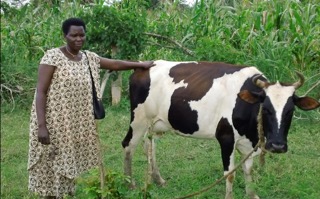
Vicki has been on trips herself, to see how women are being helped. She has offered training to micro-enterprise development committees in how to run projects and manage borrowers, and also to borrowers on how to start a business, diversifying and saving to build capacity for the future.
Links also work with in-country partners. Here's the story of Evelyn, who was helped by Link's partner in Uganda, Wellspring.
"I thank God for Wellspring and for them partnering with my church," she says. "I was one of the first people to get a loan. My household needs were great because I host many orphans and my husband's salary isn't enough for their needs."
Evelyn showed real entrepreneurial spirit, starting a business by buying chickens. "They served me well and helped me meet the household costs. That small beginning made my thoughts widen to think about adding other businesses."
She bought pigs next, then goats and finally, "when I had sold some of the goats I had enough money to buy some cattle. The cattle are doing well, they are healthy and they produce plenty of milk. I get the milk and I am able to sell the surplus and get money from it."
Mutual inspiration
While Vicki and Amy travelled to provide expertise and inspiration, they each came away inspired by the women they met.
Vicki says: "Travelling to Malawi I found women who, just like me, work hard to give their families the best they can. A small loan and a little training in running a business can help a woman to become independent and provide for her family. They are all determined to work their way out of poverty and see their children in better situations. Their generosity and strength of character was a real inspiration to me and I love to hear how their businesses are developing and how that is improving their whole family's lives."
Amy says: "The challenges facing the women I met are more fundamental than ones I deal with in business. However they approach them in the same way: we just get on with it! I have seen so much intelligence, diligence and love and am constantly reminded just how similar we are as human beings – only our circumstances are different."
Claire Musters is a freelance writer.











